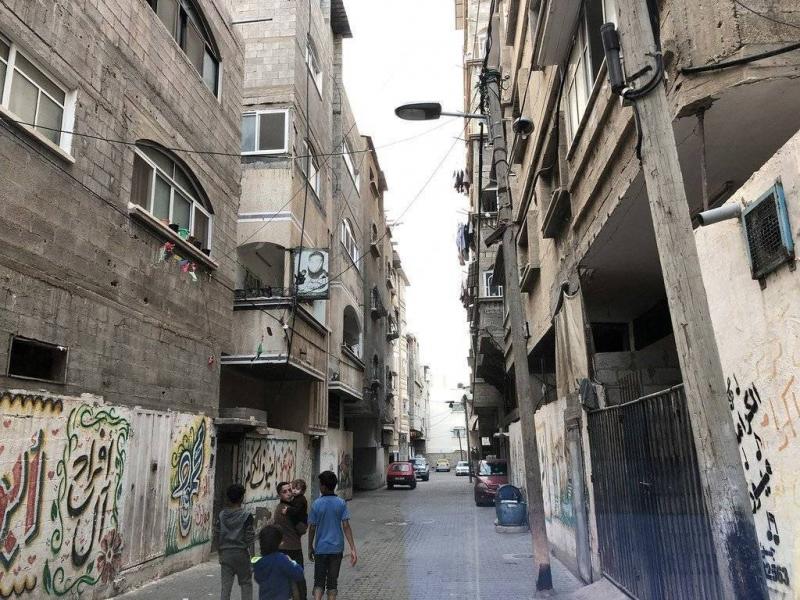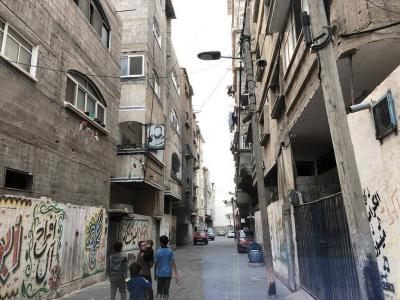The heavy rain that fell on the Gaza Strip today, Tuesday, brought with it new worries and challenges for Palestinians who have been displaced by weeks of Israeli bombardment. The onset of the rainy season and the potential for flooding have heightened fears regarding the adequacy of the sewage system in the densely populated area and the spread of diseases.
In a United Nations shelter in Khan Younis in southern Gaza, the rain caused panic among the displaced who awoke to find their clothes, which they had hung out to dry at night, completely soaked. Faiza Sarour, who fled south in search of safety after Israel began its military operation in response to the October 7 attack, stated, "We were in a house of stones, and now we are in a tent."
Winter in Gaza can be rainy and cold, and the area sometimes experiences flooding. Another displaced person, Karim Mareesh, mentioned that people in the shelter are praying for the rain to stop. The World Health Organization stated last week that Gaza faces an increased likelihood of disease outbreaks due to Israeli airstrikes disrupting the health system, reducing access to clean water, and causing overcrowding in shelters.
The organization expressed concern on Tuesday about the potential for rain to lead to flooding, which could submerge already weakened sewage facilities that have been damaged. WHO spokesperson in Geneva, Margaret Harris, said, "We have already witnessed an increase in cases of diarrhea." She added that there are over 30,000 cases of diarrhea when the organization usually expects around 2,000. She continued, "The infrastructure has been heavily damaged. We have a shortage of clean water. People are overcrowded. This is why we are calling for a ceasefire now."
Ahmad Byram, a spokesperson for the Norwegian Refugee Council, stated that the onset of the rainy season could represent "the hardest week in Gaza since the start of the military escalation." He added, "Heavy rains mean more obstacles for the movement of people and rescue teams... This will aggravate the difficulties of rescuing those trapped under the rubble or burying the dead, all amid ongoing bombardment and a fuel shortage."
Faced with the enormous humanitarian needs of Gaza's 2.3 million residents, relief organizations have been unable to prepare for the challenges that the rain and floods may impose. Juliette Touma, the public relations director for the United Nations Relief and Works Agency for Palestine Refugees in the Near East (UNRWA), stated that the agency is focusing on addressing the needs of the population "here and now." She added, "We find it extremely difficult to manage things from hour to hour ourselves, because the situation on the ground is very, very dire."
She continued that even a small amount of rain could lead to flooding in Gaza's streets due to the sewage system's inability to drain the water. "This on a normal day. Not at a time when half of Gaza, if not more, is under the rubble," she noted. The International Committee of the Red Cross also stated that it is unable to plan beyond the daily needs of Gaza's residents. William Schomberg, head of the committee's mission in Gaza, said, "The fragility and extreme complexity of the situation as a result of the fighting compel us to focus directly on the humanitarian consequences that are changing from day to day."




